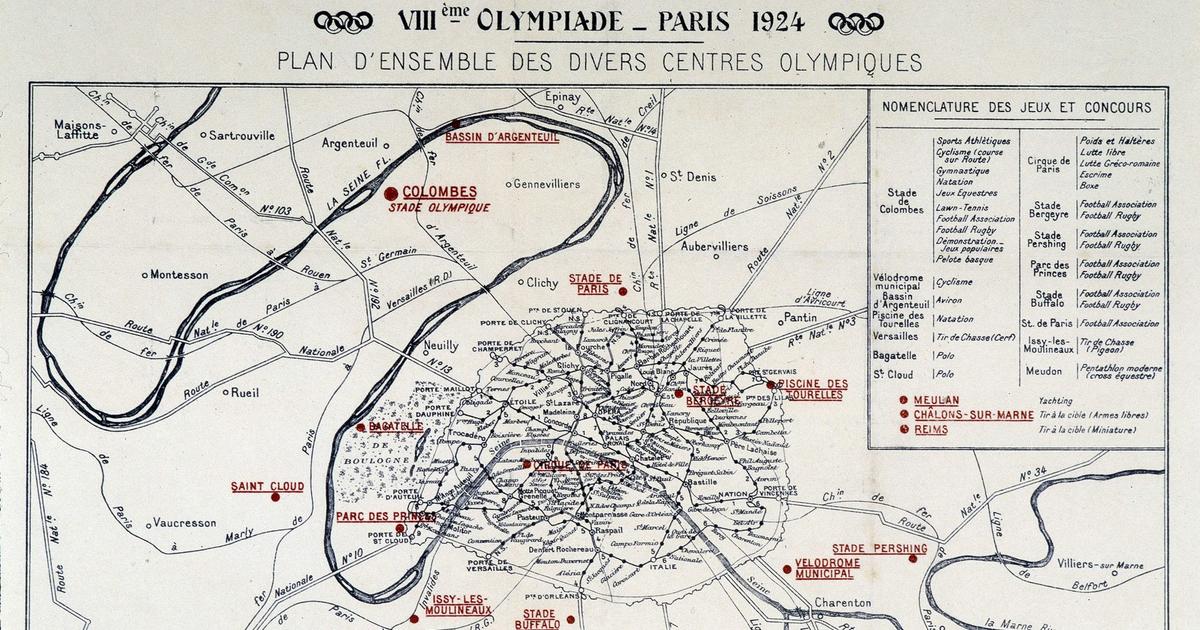In partnership with
RetroNews
, the BnF press site
Students thrown out of their accommodation as the Olympic Games approach, public transport prices skyrocketing, traffic drastically controlled: leafing through the 1924 press is a strange exercise.
The little music that we hear sounds like a familiar echo of current concerns as the opening of the Paris Olympic Games approaches.
Although the City of Light welcomed the Olympic adventure that year with enthusiasm, the previous Parisian edition, that of 1900, having been drowned out by the Universal Exhibition, some hiccups were still felt.
Solutions are also found.
Students evicted from furnished accommodation
The accommodation of athletes, their delegations and of course foreign spectators is particularly a sensitive point.
“The question of accommodation for our visitors during the period of the Olympic Games is becoming distressing
,” even noted the daily newspaper
Le Journal
on February 10, three months before the first events.
It borders on scandal when it concerns, just like today, displaced students.
On February 28, Colonel Picot, deputy for Gironde, challenged the government, reports
Le Figaro
.
The man imposes himself and does not mince his words: disfigured by a shrapnel in 1917 in the Somme, he is the founder of the Gueules Cassées association.
“Poor students,”
the war hero explains
, “are driven out of furnished hotels because with the Olympic Games approaching, the owners of these hotels hope to rent their rooms at a very high price.
Muscle is a beautiful thing, but it must not oppress intelligence... Let us defend the students otherwise we will have beautiful biceps but also idiots.”
To avoid excessive speculation, an office is dedicated to the question of housing.
The organization based on Boulevard Haussmann searches for 200,000 accommodations and serves as an intermediary for individuals who wish to rent one or more rooms to foreign travelers.
An inspector is responsible for visiting the accommodation and setting the rental price.
The minimum length of stay is eight days and payment is made via the office.
Also read “We were asked to leave”: these tenants pushed out for the Paris 2024 Olympics
The first Olympic village criticized
Athletes' accommodation is also organized.
For the first time in the history of the Games, an Olympic village is built to accommodate athletes of all nationalities.
It is built on land near the Olympic stadium in Colombes where the athletics events as well as the opening and closing ceremonies take place.
We are far from the village version of 2024 spread over 52 hectares and three municipalities, intended to subsequently be transformed into a real district.
No, at the time, the Olympic village was made up of around sixty wooden huts,
“villas”
, whose lack of comfort was highlighted by the newspaper
Le Siècle
on June 1, 1924.
“cagnas”
worthy of the First World War, placed on the ground without any viability work having been done.
The newspaper
Paris-Soir
was, however, much more lenient on April 5 when it compared them to charming
“English cottages”
.
The daily newspaper is even surprised that the housing crisis continues when treasures of speed and efficiency are deployed to meet the demands of the Olympic Committee.
However, the Olympic Village is insufficient to accommodate all the athletes.
Many delegations, particularly the Americans, prefer to stay elsewhere in the capital.
At the 1924 Paris Olympic Games, the first Olympic village was built in Colombes.
It will be completely dismantled.
www.bridgemanimages.com/Bridgeman Images
Increase in train ticket prices
The other major concern of organizers and Parisians concerns transport and traffic.
In return for the considerable financial efforts made to strengthen the connections between Paris and Colombes, and the redevelopment of the Colombes station, the state railways and the Paris region public transport company decide to increase their prices for the Olympic Games in May.
The return ticket between Saint-Lazare station and Colombes is set at 5 francs whereas it cost 1.70 francs before the first Olympic event, noted
Le Figaro
on May 7, 1924.
“These exaggerated prices risk compromising the success of the Games.
And then, really, it lacks elegance
,” remarks
Le Gaulois
.
And for motorists, we fear traffic jams.
The police chief is tackling a real headache to regulate traffic and parking.
The administration of the grant required at the time on goods entering Paris promises to simplify formalities, reports
Le Figaro
on April 25.
Good news for Parisians who, all in all, will give a warm welcome to the VIII Olympiads.

